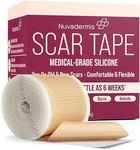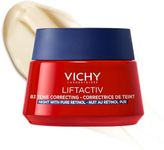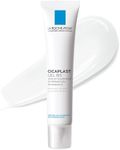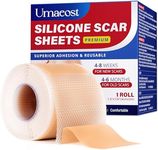Buying Guide for the Best Acne Scar Creams
Choosing the right acne scar cream can make a big difference in how your skin looks and feels. The best approach is to understand your skin type, the kind of scars you have, and how different ingredients work. Not all creams work the same way for everyone, so it's important to look at the key features and match them to your needs. Always do a patch test before using a new product on your face, and be patient—results can take time.Active IngredientsActive ingredients are the main components in a cream that target acne scars. Common ones include retinoids, vitamin C, niacinamide, hydroquinone, and natural extracts like aloe vera or centella asiatica. This spec is important because different ingredients work in different ways—some help fade dark spots, others boost collagen, and some soothe the skin. If you have sensitive skin, look for gentle ingredients like niacinamide or natural extracts. For deeper scars or more stubborn marks, retinoids or vitamin C might be more effective. Always check for ingredients that match your skin’s needs and avoid those you know you’re sensitive to.
Skin Type CompatibilitySkin type compatibility refers to whether a cream is suitable for oily, dry, combination, or sensitive skin. This is important because using a product not meant for your skin type can cause irritation or make acne worse. Creams for oily skin are usually lightweight and non-comedogenic, meaning they won’t clog pores. For dry skin, look for creams with moisturizing ingredients. If you have sensitive skin, choose fragrance-free and hypoallergenic options. Knowing your skin type helps you pick a cream that will work best without causing side effects.
Texture and AbsorptionTexture and absorption describe how the cream feels and how quickly it sinks into your skin. This matters because a heavy, greasy cream might not be comfortable for daily use, especially if you have oily skin. Lighter gels or serums are better for daytime or for those with oily or combination skin, while richer creams can be more soothing for dry or mature skin. Think about when and how you want to use the product—if you want something for daytime, a fast-absorbing, non-greasy formula is ideal.
Scar Type TargetedScar type targeted means whether the cream is designed for dark spots (hyperpigmentation), raised scars, or pitted scars. This is important because not all acne scars are the same, and some creams are better for certain types. If you have dark spots, look for creams with brightening ingredients like vitamin C or licorice extract. For raised scars, ingredients that help with skin texture, like silicone or centella asiatica, are useful. For pitted scars, creams with retinoids or peptides may help improve skin smoothness. Identify your scar type to choose the most effective product.
Fragrance and AdditivesFragrance and additives refer to extra ingredients added for scent or texture, which can sometimes irritate the skin. This is important if you have sensitive or allergy-prone skin, as fragrances and certain preservatives can cause reactions. If you know your skin is sensitive, opt for fragrance-free and minimal-ingredient formulas. If you don’t have sensitivities, this may be less of a concern, but simpler formulas are often better for long-term use.











![La Roche-Posay TINTED MOISTURIZER, Effaclar Duo [+] Unifying Tinted Correcting Care for Blemishes and Marks, Suitable for Acne-Prone Skin & Acne Marks, 40ml](https://images-proxy.bestreviews.guide/6vT_yfeRaXFnD2Umo9-5gI1ZbWI=/0x150/https://m.media-amazon.com/images/I/31WdFGKG05L._AC_CX679_.jpg)


